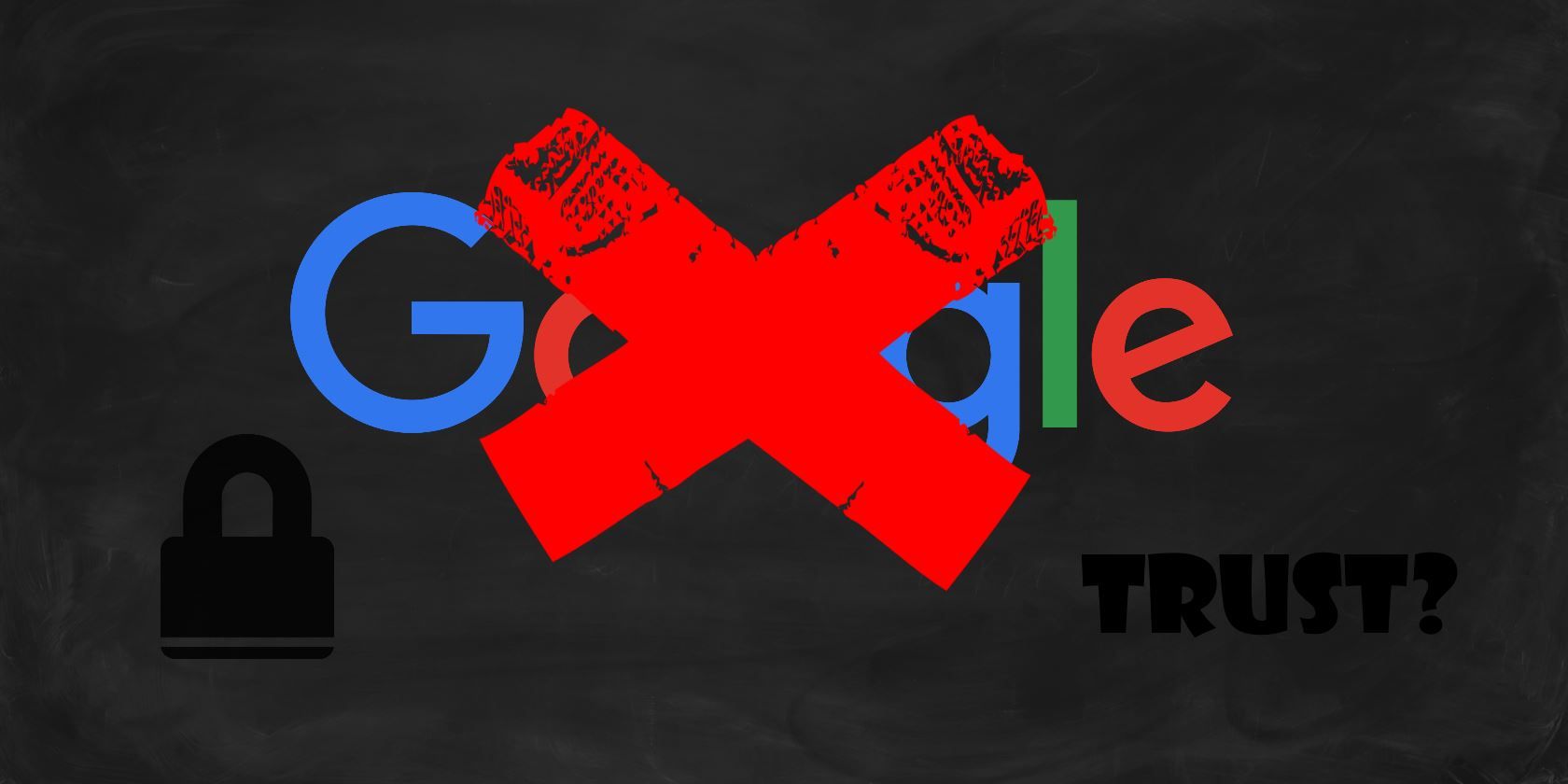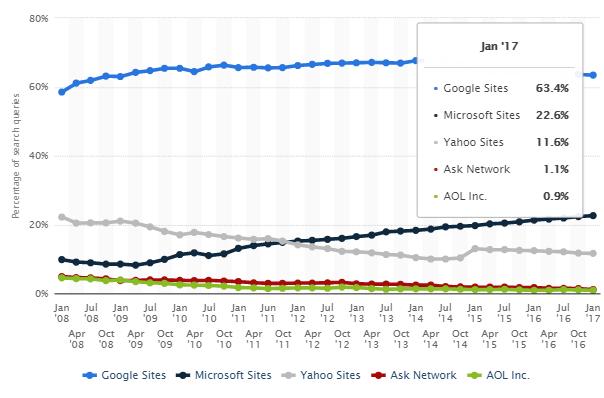Google is a byword for search. Indeed, "to Google" is a recognized verb, boasting the kind of global brand awareness that startups can only dream about. But Google isn't just powering your insomnia-driven searches for obscure song lyrics at 3 AM.
No.
It's in your smartphone, your car, your smartwatch, and maybe even powering your internet search from a mobile Wi-Fi balloon floating in the skies.
Does Google have too much power? As of January 2017, Google was powering over 63 percent of U.S. searches, giving it unrivaled access to our browsing habits, and more. Furthermore, Google tracks your every search to build an individual advertising profile. The search giant knows more about your browsing habits than you could hope to imagine.
It's time for a change. I'm going to explore why giving everything to Google isn't such a good idea, and list some excellent alternatives that still get the job done.
Privacy
Google is everywhere. It gathers information to power its massive advertising arm. Google is tracking you around the internet, building an individual advertising profile to better serve you ads. Some users don't mind, reasoning that if they're going to see ads (advertising essentially powers the internet), they might as well see ones relevant to their interests.
It isn't only search data collected, though. Google elaborate on their data collection points here, but here are some you should be immediately aware of:
- Emails sent and received through Gmail.
- Your contacts and calendar events.
- Photos added and uploaded.
- Your Google Docs, Sheets, and Slides stored on Drive.
- Videos you watch.
And that is just through your browser. If you have an Android smartphone, tablet, or smartwatch, you'll likely be relaying your location, information about local SSIDs, and more as you move around your city.
Google has come under fire for its "invasive" business practices on more than one occasion, appearing in court in the U.K., U.S., France, the Netherlands, Spain, and several other countries. Their charges usually fall under a similar bracket: violation of privacy laws.
Take Your Privacy Back
How do you take some privacy back? Despite finding Google ingrained in so many services, it isn't too difficult to take the power back.
Change your browser. There are several excellent Chrome alternatives specializing in eliminating trackers (not just the Google trackers). We've covered several of the best, so take your pick.
Don't use Google search. Most of the time, we hit Ctrl + T for a new tab and type the search into the omnibox. Easy. However, you need an alternative. DuckDuckGo is "the search engine that doesn't track you," promising not to store personal information, display ads, or follow you around the internet. It does some cool things that Google search doesn't, too.
Stop using Gmail. Your incoming and outgoing emails contain useful data that Google is happy to hoover up. Try one of these secure and encrypted alternatives instead.
Sign out. Your Google account is a core tracking tool. It links searches across the myriad Google services to your name (or whatever you signed up with). You'll start to see a change in the adverts displayed to you.
Get Technical
Google is great for your everyday search queries. The Google engineers are constantly refining the search algorithm to better match our organic search requests. But sometimes, Google just doesn't have the answer. In those times, you need an alternative.
Wolfram Alpha is the answer. Unlike Google, it doesn't always go trawling the web for new information. Wolfram Alpha is a computational search engine, focused on creating new information (as well as answering all the banalities we still manage to think of). Unsure if it's right for you? We've explored 20 ways that your everyday life is easier when you use Wolfram Alpha.
Wolfram Alpha isn't the only Google alternative with a technical or specific focus. For instance, CC Search scans through Creative Commons-licensed media. Pipl is a powerful (and somewhat terrifying) people search engine. It tracks down user names, real names, social media accounts and more. Onion.link [Broken URL Removed] lets you search the dark web from your regular browser instead of having to install the privacy-focused Tor browser.
Search Can Be Rewarding
Okay, this is tenuous. It also goes against the privacy issues I've detailed (e.g. signing into another service to track your search).
But if you sign into your Microsoft account, sign up with Microsoft Rewards, and use Bing as your search tool of choice, you'll earn rewards. The rewards come as points that can be redeemed on games or apps in the Windows Store or directly within the Microsoft Store.
Note that only U.S. residents are eligible for Microsoft Rewards.
It's All About Trust
Trust and privacy are the biggest reasons to leave Google and its search algorithm behind. There is no beating about the bush. The sheer number of searches conducted every single day by Google is astonishing. They hold tens of exabytes of data on every subject matter you'd care to think of. And your personal data, your personal searches, your obscure, seemingly trivial or highly embarrassing searches, are in there too.
We are relying on a multinational corporation with a proven history of privacy violations... to protect our privacy.
Is it time to leave Google search behind? I think the real question to ask yourself is, "Can you live without Google services?" Including YouTube, Docs, Sheets, Maps, your Android powered smartphone, and so on. It's a lot to let go.
If you choose to continue using Google, take a little time to enhance your experience with these ways to customize your Google Search results.
Image Credit: Gearstd via Shutterstock.com



